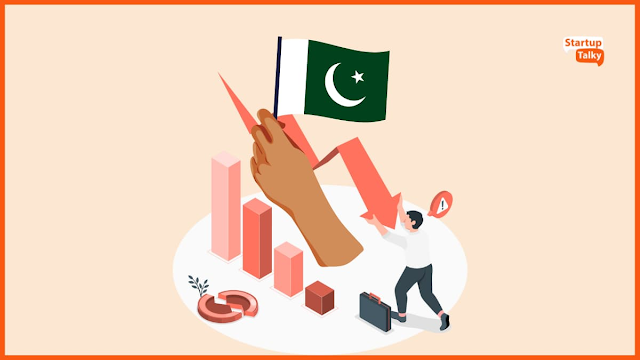Money Matters: Unveiling Economic Potential in Pakistan
Pakistan, a South Asian nation endowed with a rich cultural heritage, diverse geography, and a burgeoning population, is poised for significant economic growth. While it has faced its fair share of challenges over the years, including political instability, security concerns, and fiscal deficits, the country is showing promising signs of economic potential. This article explores the various factors contributing to Pakistan's economic potential, highlighting its strengths and discussing the obstacles that need to be addressed for sustainable growth.
1. Geopolitical Significance:
One of Pakistan's most crucial strengths is its strategic geopolitical location. It shares borders with India, China, Afghanistan, and Iran, making it a vital player in regional and international affairs. The China-Pakistan Economic Corridor (CPEC), a massive infrastructure project, connects Gwadar Port in Pakistan to China's northwestern region. This project has the potential to transform Pakistan into a trade and energy corridor, offering significant economic benefits.
2. Demographic Dividend:
Pakistan boasts a young and growing population, which, if harnessed effectively, can be a driving force for economic development. With approximately 220 million people, Pakistan's labor force is significant and can serve as a source of both skilled and unskilled labor, facilitating the growth of various industries.
3. Agricultural Potential:
Agriculture plays a pivotal role in Pakistan's economy, employing a significant portion of the workforce. The country is known for producing a variety of crops, including cotton, wheat, rice, and sugarcane. With appropriate policies and investments, Pakistan can further improve its agricultural productivity and exports, boosting its economic potential.
4. Energy Resources:
Pakistan possesses vast energy resources, such as coal, natural gas, and renewable energy potential. The Thar coal reserves have the potential to provide an affordable and sustainable source of energy, reducing the country's reliance on expensive imported fuels.
5. Technological Advancements:
The Information Technology (IT) sector in Pakistan has shown remarkable growth in recent years. The country has a thriving software industry, producing talented software developers, entrepreneurs, and startups. With continued investment and government support, this sector has the potential to become a significant contributor to the economy.
6. Revival of Manufacturing:
Pakistan's manufacturing sector has been on a revival path, driven by the ease of doing business initiatives and the government's focus on industrial development. This growth in manufacturing can help create jobs and reduce imports, thus contributing to the overall economic potential.
Challenges and Obstacles
While Pakistan has tremendous economic potential, several challenges must be addressed to realize this potential fully:
1. Political Stability: Pakistan has experienced periods of political instability, which can hamper economic growth. Ensuring a stable political environment is essential for attracting foreign investment and fostering domestic growth.
2. Infrastructure Development: The country needs to continue investing in infrastructure development, particularly in transportation and energy, to support economic activities and connectivity.
3. Education and Skills: Enhancing the quality of education and workforce skills is crucial for the effective utilization of the demographic dividend.
4. Security Concerns: Security challenges in certain regions deter investment and economic growth. Addressing these concerns is vital to unlocking Pakistan's economic potential.
5. Fiscal Reforms: Pakistan has faced fiscal deficits and debt challenges. Implementing fiscal reforms and managing public finances prudently is essential for long-term economic stability.
Pakistan's economic potential is evident, driven by its strategic location, young population, agricultural resources, and burgeoning IT sector. However, realizing this potential requires concerted efforts to address political stability, infrastructure development, education, security concerns, and fiscal reforms. With a commitment to overcoming these challenges, Pakistan can harness its economic potential and emerge as a significant player in the global economy, improving the lives of its citizens and contributing to regional and international stability.



Comments
Post a Comment